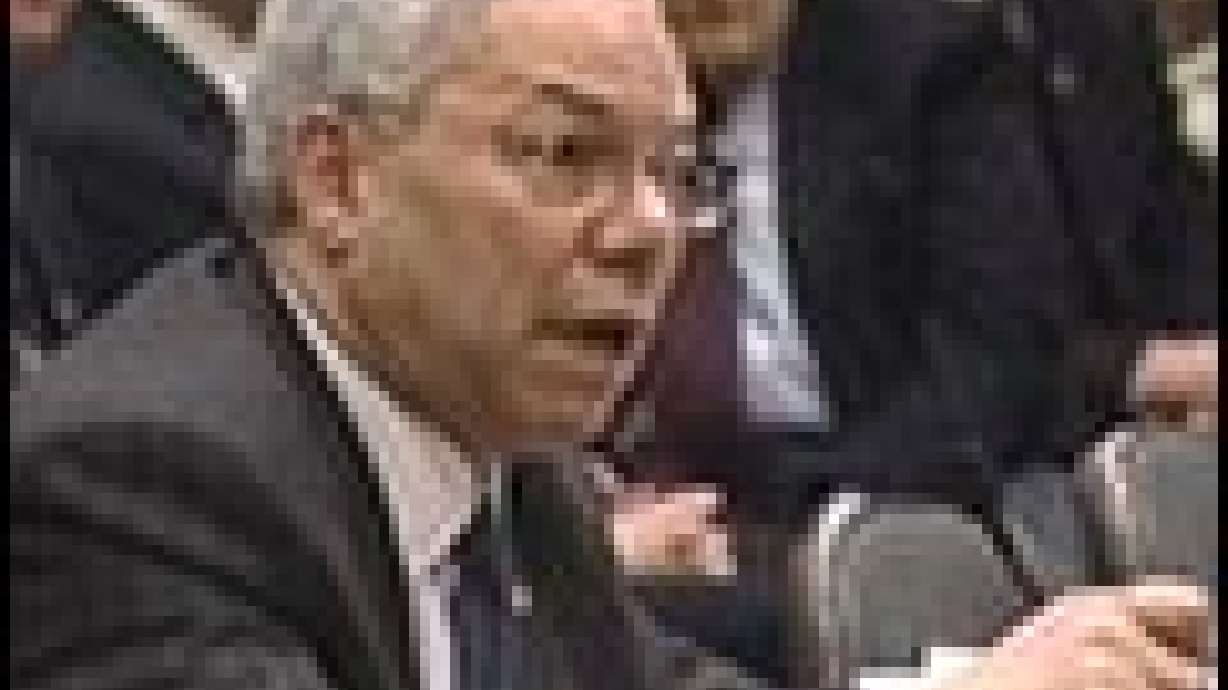Estimated read time: 3-4 minutes
This archived news story is available only for your personal, non-commercial use. Information in the story may be outdated or superseded by additional information. Reading or replaying the story in its archived form does not constitute a republication of the story.
BAGHDAD, Iraq (AP) -- Secretary of State Colin Powell, responding to criticism of the U.S.-led war against Iraq, declared Friday that the threat of terrorism persists and said it's no time for civilized nations to "run and hide."
"Terrorism existed in many parts of the world before this war," Powell said at a news conference after meeting with Iraqis, coalition leaders and U.S. troops here.
Speaking a day after the Polish government charged it had been misled by the United States about the fighting capability of Iraqi leader Saddam Hussein, Powell said Washington provided "full, candid and open information" with respect to the threat it saw from Saddam.
"Poland has been a good ally and a solid partner in the coalition and I am pleased that even though the president did make that statement, he said the Polish troops would be remaining," Powell said.
Poland's President Aleksander Kwasniewski was to have a talk later Friday with President Bush about Poland's commitment to postwar Iraq.
Making an unannounced visit on the first anniversary of the Iraq war, the secretary earlier told several hundred American soldiers and civilian workers that America must maintain its fight against anti-democratic forces here "because we cannot let them win."
Speaking in a huge reception room in a palace built by Saddam, Powell spoke disparagingly of the those who, he said, are trying to stop through terrorism what the United States and its allies are trying to build.
Powell talked of the increasing tide of violence in recent days, including the bombing of a hotel in downtown Baghdad.
He attributed it to elements of a deposed regime "who do not want to see the Iraqi people live in peace ... who would return this nation to a nation under the thumb of a dictator. Those days are gone."
"Yes, there will be difficult days ahead," Powell said. "... I don't want to underestimate the seriousness of the challenge and we have to shift as the enemy shifts. They have moved from harder targets to softer targets."
"So there has been a spike in attacks," he said. "We have seen these spikes before and I hope it won't stay at this level and we'll work to get it down as soon as possible. "
Powell flew here from Kuwait in a military plane, his fourth stop on a swing through South Asia and the Middle East. As part of security requirements, there was no public disclosure of his visit until his arrival at Baghdad International Airport.
Powell's visit came as the United States and its coalition allies have been working hurriedly to make a seamless transition to an Iraqi-led transition government that would replace the U.S.-led Coalition Provisional Authority. The CPA has been in charge here since Saddam's ouster last April.
Asked Friday about suggestions the transition is going poorly, Powell said, "I wouldn't say we're at an impasse or that anything is frozen. We are in a continuing process of moving toward an interim government."
Powell said officials "have not resolved yet ... its shape. But we have a number of ideas that are under consideration and we have time between now and then to put that government in place."
Referring to harsh criticism of U.S. policy by the Spanish in the wake of a bombing attack in Madrid earlier this month, Powell said he thinks the coalition "is still strong -- 30 odd countries still here and doing their job."
"This is not the time to say, 'Let's stop what we're doing and pull back.' It's time to redouble our efforts ... and not run and hide and think it won't come and get us," he said.
"It's a threat to the whole civilized world and the whole civilized world has to respond," Powell added. "I don't think the war in Iraq is the source of instability around the world." The secretary said there have been incidents of terrorism around the world, such as in Saudi Arabia, which "is not attributable to the war in Iraq."
(Copyright 2004 by The Associated Press. All Rights Reserved.)









